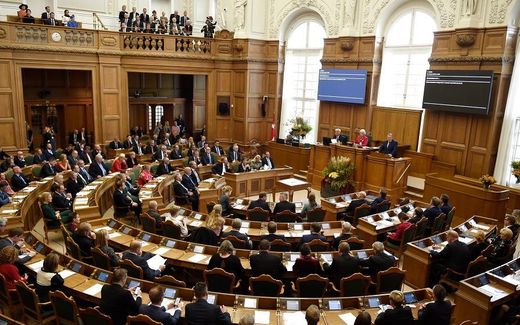Danes disagree on equating vegetarianism to religion

Photo AFP, Mladen Antonov
Northern Europe
According to some Danish vegetarians, food choices should be equated with diet choices based on religion. “Just as you have the right to practise your religion, you should have the right to practise your beliefs as a vegan or vegetarian.”
Is veganism a lifestyle or a way of life that can be equated with faith? That question arises after the Danish Vegetarian Association has convened two municipalities and two regions on behalf of more than 1300 citizens.
According to the association, it is an expression of discrimination when hospitals, daycare centres and other public kitchens fail to offer vegetarians and vegans a real alternative to conventional food with meat and other animal products.
The four cases are about citizens who live a vegetarian or vegan lifestyle but have faced great challenges in public kitchens. This reports the Danish news site Via Ritzau. “We wish there was no need to go to court to ensure vegans and vegetarians have the right to eat meals without animal products”, says Christoffer Dragsdahl, Secretary-General of the Danish Vegetarian Association. “Unfortunately, there is widespread discrimination against families and citizens who want nutritious, plant-based meals.”
Lawyer Dorthe Kynde Nielsen will lead the cases on behalf of the Danish Vegetarian Association and the families. “There is already a practice that there is unfair discrimination if you cannot be offered a diet based on your religion. And just as you have the right to practise your religion, you have the right to practise your beliefs as a vegan or vegetarian, without being discriminated against in public”, says Dorthe Kynde Nielsen to the Christian Danish daily Kristeligt Dagblad.
In addition to questions about human rights, the cases also raise ethical issues, says Morten Bangsgaard , a member of the Ethics Council. “It raises the question of how much diversity we can accommodate in the community.” According to her, this insistence on diversity and personal rights can ultimately “stifle community and the welfare state, because it is not certain that we can carry that in the long run.”
Related Articles






